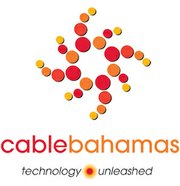By NEIL HARTNELL
Tribune Business Editor
nhartnell@tribunemedia.net
Cable Bahamas appears close to obtaining half the regulatory approvals it needs to consummate its $65 million US expansion, after the Federal Communications Commission (FCC) gave it the ‘fast track’ authority it was seeking.
Statements posted on the FCC website, which have been obtained by Tribune Business, confirm that on Tuesday the BISX-listed communications provider, and its Summit Vista vehicle, were given “special temporary authority” to consummate the purchase of Orlando-based Summit Broadband.
This authority, which speeds up the process for FCC approval of Cable Bahamas’ purchase, lasts from November 27, 2012, to January 28, 2013, and should enable the Bahamian company to avoid paying Summit Broadband a “substantial break-up fee”.
FCC approval is required for only one of Cable Bahamas’ two US purchases, the other being Marco Island Cable and its NuVu affiliate.
With the US regulatory process on track, the only other potential hurdle for Cable Bahamas to cross is in the Bahamas, via exchange control approval from the Central Bank of the Bahamas. That, of course, really means approval from the Government’s Investments Board (meaning the Cabinet).
When contacted for comment last night, Anthony Butler, Cable Bahamas’ chief executive and president, would only tell Tribune Business: “We’re still going through the process.” He declined to comment further.
While it was effectively ‘laying it on’ and ‘rattling the sabre’, Cable Bahamas had pushed for FCC ‘fast track approval’ by December 15 on the grounds that failure to close by this deadline would expose it to a “substantial financial loss”.
The BISX-listed communications provider’s joint filings disclosed that it would be forced to pay “a substantial break-up fee” to Orlando-based Summit Broadband if the acquisition was not completed by that date.
The size of the break-up fee was not disclosed in the FCC filings, which also said that upon completion Cable Bahamas will inject capital into the US company to enable it to finance/complete the build-out of its Orlando-based network.
The October 24, 2012, filing with the FCC argued that by granting ‘special temporary authority’ the FCC would be acting in “the public interest” of Summit Broadband’s US customers.
“While neither of the companies is facing imminent financial failure, Summit Broadband is contractually obligated to consummate the merger on or before December 15, 2012,” the FCC filing said.
“Accordingly, under the terms of the agreement, in the event the plan of merger is not consummated on or before December 15, 2012, Summit Broadband may, in its sole discretion, terminate the agreement and require Cable Bahamas to pay a substantial break-up fee.
“Such an outcome would require Cable Bahamas to incur a substantial financial loss.”
Break-up fees are common in sales agreements related to mergers and acquisitions. They are designed to concentrate the parties minds’ and ensure they are serious, for after a certain date - if one decides to walk away - the contract may require them to pay such compensation to the other side.
In essence, break-up fees are designed to compensate parties in merger transactions for the time and disruption caused if the other side abruptly decides to walk away from the table.
The FCC filing said that fast tracking approval “will serve the public interest by hastening Cable Bahamas to infuse the necessary capital into Orlando Telephone (Summit) to enable the company to compete effectively in the increasingly competitive marketplace for telecommunications services in central Florida.
“At present, Orlando Telephone Company is deploying a Gigabit broadband access network in central Florida utilising a fibre to the premises architecture. This current network serves campus housing and residential neighbourhoods in Orange and Osceloa counties.
“This capital intensive network deployment will be accelerated by the infusion of capital into the company by Cable Bahamas, and such support will enable Orlando Telephone to continue to upgrade its network, and to offer new and innovative services.”
Translated, it appears that Summit Broadband requires a partner/new owner to inject the necessary capital financing to enable it to complete the roll-out of its network. And that company is Cable Bahamas.
The FCC filings detailed how the transaction would be structured. A newly-incorporated Florida company, Summit Vista, will merge with and acquire the Orlando-based company.
Summit Vista will be a 100 per cent, wholly-owned subsidiary of Trinity Communications. The latter is owned, in turn, by Cable Bahamas’ 100 per cent-owned subsidiary, Caribbean Crossings.
Both Cable Bahamas and Summit Broadband argued that the FCC should give speedy approval because, following the deal, the company would have “substantially less than 10 per cent” of Florida’s inter-state, interexchange market.
The firms said Cable Bahamas’ “greater financial strength” would enable Summit Broadband to become more competitive, and expand its customer base and services.





Comments
Use the comment form below to begin a discussion about this content.
Sign in to comment
OpenID